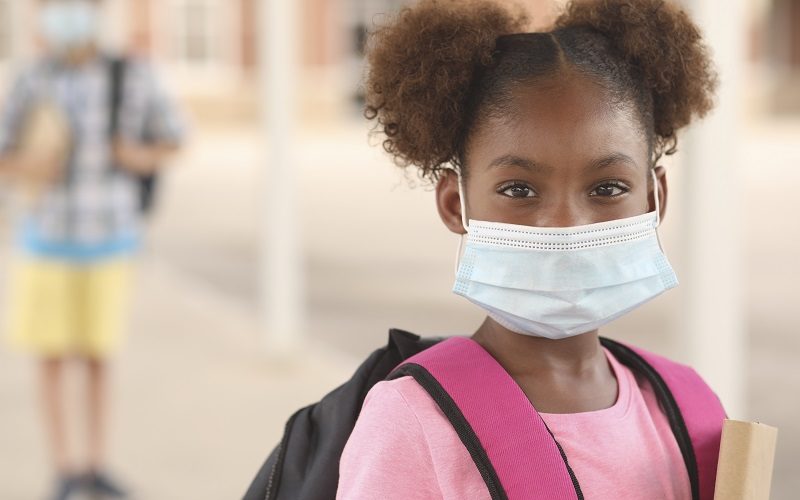
Having spent months at home, many children have been separated from their usual groups and daily routines. Pupils also face the prospect of taking lessons with strict Covid-19 precautions in place, such as wearing masks and following social distancing rules.
It is not surprising then that parents are concerned about the impact this may have on their children, and how they will keep them safe.
In this blog, Dr Craig Turnbull, Lead psychologist for Cygnet Health Care’s Child and Adolescent Mental Health Service at Cygnet Hospital Bury, shares his tips for parents and carers on how to cope.
1. Do your homework
Going back to school always carries some uncertainty but throw in the impact of being isolated for many months and having to navigate the additional precautions that schools are taking to prevent the spread of the virus, and the pressure increases.
None of us has faced this situation before and it can bring up genuine fears and anxieties. Most children won’t know what the school will look like when they go back, what interactions are allowed, what the expectations are of them and how classes will be taught. There may be changes in friendship groups and changes in teacher-student relationships.
What parents and carers can do is get a better understanding of these changes and what will be expected of students and discuss these in advance with their children. Many schools have started to send out details, and by sharing these, it will remove some of the uncertainty that can be unsettling to children.
2. Start talking and be watchful
Some children have a tendency to keep things to themselves if they are anxious. It’s important for parents and caregivers to make them aware that if they are struggling, there is an opportunity to talk.
By talking you are making room for difficult feelings and genuine concerns to be expressed. Children often rely on an adult to help them manage difficult emotions or worries. By listening, we are sending the message that what our child is feeling is important and that it has value.
Caregivers also need to tune in to what might be going on with their children. There may be some clues such as behavioural changes that are uncharacteristic. Often, distress in young people is expressed through acting out or withdrawing from normal activities and groups. It’s important not to ignore these changes. Take an open approach, be non-critical, and put the behaviour in context as being part of a bigger issue. This behaviour is not something to be judged as right or wrong, but something to be understood. This requires a caregiver skill that is often referred to as ‘attunement’ – in other words, you need to become an emotional detective to find out what might be behind the behaviour.
3. Get back into a sleep routine
It’s really important for children and young people to get their sleep patterns back to normal. Anxiety and stress feed off uncertainty and therefore anything that can create a sense of predictability can help young people self-regulate their emotions and behaviour.
The long period that children have spent out of school might mean they’ve fallen into a poor sleep routine and this can cause disruption that we call ‘day and night reversal’. Consequently, they may not function at full capacity during day-time hours.
Good sleep hygiene is about building structure and routine in bedtimes. Because there is always an adjustment period after the holidays, it’s best to start this at least one week before they go back, and ideally, a fortnight before.
It also helps if the whole family adopts a routine so that they can support their child’s return to a healthy sleep pattern.
4. Coping with stress
There are lots of things children and young people might be worried about when they go back to school. They might be concerned about what is expected of them; what will happen if they become ill or pass the virus on. Some children may also be dealing with grief following the loss of a loved one during the lock down period. All these underlying stress factors have the potential to be exacerbated further when it’s time to go to school.
Parents can reassure their child that they won’t be alone in feeling worried. Help them to focus on things that are within their control. It’s natural to have anxieties and fears, but it’s important to remember the difference between something that worries us, and something we can do something about. For example, we can’t make coronavirus disappear – that’s out of our control – but we can wash hands regularly, wear a face mask and practice social distancing.
When it comes to managing stress, try STOP:
S – Stop and pause for a moment,
T – Take a deep breath,
O – Observe what’s going on in your thoughts, your feelings and in your body,
P – Practice what works. In other words, try to make good choices, do something that is in your control and postpone worrying about things that are not.
5. Looking after yourself!
When children are upset they often look to their parents to help them manage. In most cases, family provides a felt sense of safety and containment that filters out stresses and worries that children are often exposed to on a daily basis. Using the family as a secure base, children are able to build resilience and gain access to support that protects against what might be overwhelming stressors.
A secure family system requires parents that are available and able to respond consistently. That means parents also need to look after themselves. Parents should take time out, doing something that helps them de-stress while also putting some distance between them and their child’s behaviour. Parents giving themselves this type of space and emotional validation will be in a much better place to respond accurately and effectively when a child needs support.